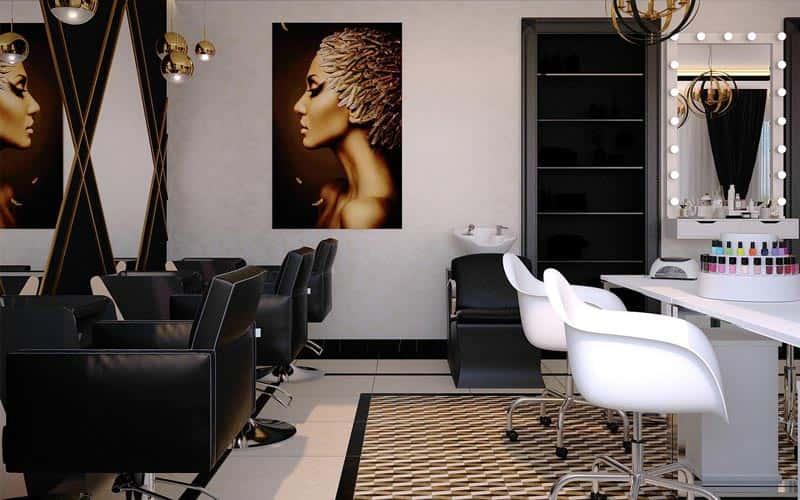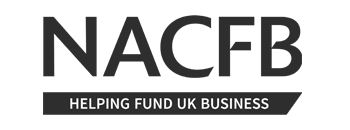In 2020-2021, The hair and beauty industry generated £4.6bn in turnover and will continue to grow, according to recent industry figures published by NHBF. So it's the perfect time to set up shop and take advantage of a thriving industry.
But where do you start? Picking products? Finding empty premises to rent or paying someone for a flashy website? Before you dive headfirst, you'll need to write a beauty salon business plan.
How to write a business plan for a beauty salon
It's common to want to start right away with all the fun stuff like you're marketing, which treatments you'll offer and where you want to be based, but this can really set you up for failure.
I know the term business plan doesn't exactly sound like the most enjoyable thing and many people stick their fingers in their ears, pushing it to the side to deal with later. But get your beauty salon business plan done right, and it's one step closer to being successful.
What is a beauty salon business plan?
A business plan is a written document and should cover all aspects of your business activities. Here's some of the essential information you'll need to include in your beauty salon business plan:
1 About you
This is where you explain why you're going into business, why you're the right person and what qualifications and experience you have to create a profitable business, whether it's a hair salon, nail salon, beauty parlour or spa.
2 About the business
You'll need to summarise the business and explain what you'll be selling, how it will operate and where you see the business going in the future. For example, will your beauty salon be mobile, or will you operate from a fixed location?
3 About the products or services
You'll want to go into detail about what you're selling. How will the product be produced or the service carried out? What equipment do you need and how much will it all cost to deliver. Knowing what services you want to offer can also help you decide on your beauty salon name for your business if you choose to do so.
4 The market
Knowing your customer is key. How much demand is there for what you're offering? Who are your typical customers? Where are they based? How old are they? What treatments are most popular with them? Is it waxing? Nails? Dermaplaning? Or all of the above?
5 Your strengths, weaknesses, opportunities, and threats
A SWOT analysis is something you'll want to do right away. Find out what your strengths and weaknesses are. What opportunities do you have available, and what could become a threat. Doing this gives you a chance to prepare for the worst and have a strategy to put in place if something does go wrong.
6 The competition
Finding out who your competition is early on is a real advantage. You'll be able to find out what they offer and why customers go to them. Take this information and figure out how you can do better.
7 Start-up costs and sales forecast
This is adding up the costs of absolutely everything you'll be buying to start your business, from physical items to electric and gas bills at your rented premises. Your financial plan is going to come in very handy when you need to see how much you'll have to borrow when setting up.
8 Personal budget
Your life doesn't stop when you start a business, and you'll still need to eat, clothe yourself and pay your bills. Setting up a personal budget to work out how much money you need to live will help you keep your finances in order.
9 Failure plan
Obviously, you don't go into business to fail, but with 20% of new businesses failing in their first year, you'll want a failure plan or an 'it didn't go quite as I planned' plan. This should include any loan repayments and how you plan to pay them.
Free beauty salon business plan templates
There are many free beauty salon business plan templates that you can download and use to help you get started. Here's a list of links to some of the best resources:

So, how much does a salon cost to open?
This all depends on the area you'll be renting or if you choose to buy a building instead. It's more purse-friendly to rent and less risk involved. All business costs will need to be outlined in your salon business plan. Here are some of the most common costs involved when setting up:
- Rent
- Business rates
- Electricity and gas charges
- Product costs
- Staff costs
- Insurance
- Your personal budget
- Loan repayments
- Any accountancy fees
- Bank charges
- Refreshments
So, add up all of your costs and divide by your average service cost. Let's say your salon outgoings are £1,500 per month and your average service is charged at £20, then £1,500 divided by £20 = 75 services/clients per month. That will cover basic costs, so your target will need to be higher if you want to make a profit.
Covid-19 and a beauty salon business
As we are all aware, Covid-19 played a crushing blow to businesses in 2020 and 2021. It would be a sensible idea to include threats like Coronavirus in your salon business plan. By developing your business strategy to mitigate social distancing risks within your business, you can still maintain a profitable business.
Is a beauty salon a profitable business?
With the beauty industry value on the rise, you really can make your business profitable. One way to do this is to rent out extra space to self-employed beauty therapists, from makeup artists, nail technicians, brow technicians, skincare specialists or registered nurses dealing with injectables.
This not only allows you to offer your client more but you open up your salon to even more clients and hopefully more referrals. However, remember that you'll want to make sure you have all the relevant licences and all legal requirements are met with a beauty salon. If you're unsure of this, get in touch with the local council where your premises will be based, and they will be able to help you.
How much does a salon owner make?
According to Glassdoor, the average salary of a salon owner in the UK is about £40,000 a year. However, this is unlikely to happen right away. Many people don't even pay themselves in their first year of business, but you still need something to take home. This is where your personal budget in your salon business plan comes in. If you'd really like to pay yourself a good wage from the get-go, you're going to have to account for this in your start-up cost.
How to improve your beauty salon business
Marketing your business
This is key in getting your business off the ground. You may have a few clients follow you if you've moved from employment to self-employment, so this could be a good place to start. Set up your social media, make use of local magazines and take out an advert. Do a leaflet drop in areas that you know your customers spend time. Places like corner shops and post offices are usually happy for you to leave leaflets with them.
Offers and promotions
Offering your existing clients money off their next appointment if they refer a friend can really work. If you have other people renting space from you, maybe set up an offer or competition on your social media channels in collaboration with them. This means not only your customer base sees it but theirs too.
Social Media
Being active on your social media channels will really help a new business, and getting existing clients to review you online will help more people find you. This is also a chance to create a cohesive brand and really get people to remember who you are and what you do.
Go local
Find local charities or organisations like summer and Christmas fayres to showcase your business. Print out flyers and business cards for people to take away, maybe even gift a prize in a raffle for your local school or sports club. Giving something small like a free blow-dry or a mini manicure won't cost you a lot but could lead to new clients.
Just make sure that wherever you offer your free service, it has to be relevant. A beauty salon service isn't going to do well at the local working men's club but might do well at a primary school Christmas fayre.
How do I get a business loan for my beauty salon?
You'll need a good start-up business plan to apply for any loan, so it's a good incentive to get yours sorted. Then you can start applying for a business loan for your beauty salon. Lots of people choose the traditional route of borrowing from a bank, but there are plenty of alternative funding options. From the government-backed start-up loan company to the Prince's Trust, you'll be sure to find one that suits the needs of your business.
Setting up a beauty salon from home
This can be a really cost-effective way to get yourself off the ground. Without any of the obvious overheads, you'll be able to save a lot of money. This is a more personal approach, and you'll have to be comfortable with having clients in your home. You'll also want to register with your local council to adhere to any legal requirements.
Setting up on your own can be scary, but by preparing and doing your research, you really can make a good go of it. It's tempting to sideline all the boring bits and just do the bits that we're passionate about, but this is a business, not just your hobby. So get to grips with the tricky stuff like finances, accounting, regulations, business rates, and your marketing upkeep.
Updating your salon business plan
Your beauty salon business plan won't just be something you do once and can forget about, things will change, and you'll need to update it regularly. This is a great chance to see where you're really succeeding and where needs improvement. By getting the basics right, you really are giving yourself the best chance to succeed.




